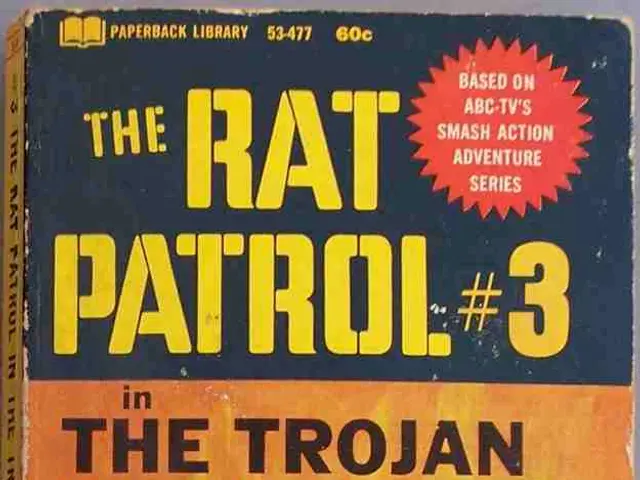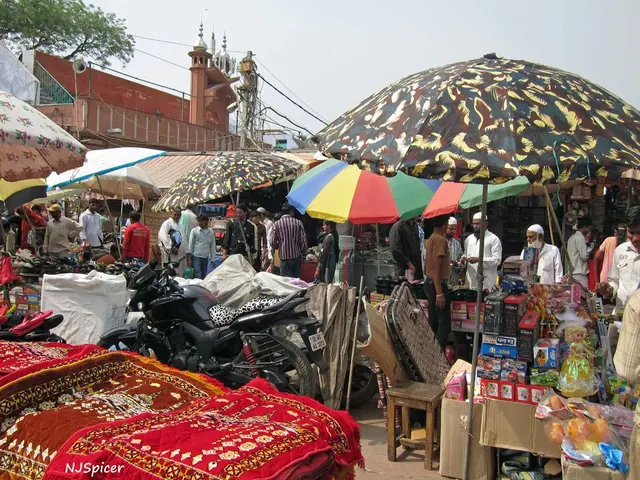Online gambling issues in the Philippines, with Marcos taking action as voices grow for an outright prohibition
In the heart of Southeast Asia, the Philippines, under the leadership of President Ferdinand Marcos Jr., is navigating a complex online gambling landscape. The Philippine Amusement and Gaming Corporation (PAGCOR), a state-owned entity, continues to regulate the industry, granting licenses and overseeing compliance with regulations aimed at curbing illegal gambling and addressing public concerns such as problem gambling and fraud.
A Shift Towards Stricter Regulations
Recently, PAGCOR has implemented stricter rules, requiring accredited Know Your Customer (KYC) providers and employing advanced technology such as artificial intelligence to detect problem gambling and spot illicit activities on online gambling platforms. This move is part of an enhanced regulation and monitoring strategy.
Moreover, PAGCOR aims to privatize 41 land-based casinos by 2028, focusing more on regulatory oversight rather than operating gaming establishments. This policy shift could strengthen governance, including the online sector.
Crackdown on Illegal Operators
There is a stronger crackdown on unlicensed and illegal offshore gambling sites to protect consumers and maintain legal market integrity. This effort is crucial in ensuring a fair and safe environment for all participants.
Societal and Political Pressure
The Catholic Bishops' Conference of the Philippines (CBCP) has labelled online gambling as a public health crisis, comparable to drug addiction, alcoholism, and other types of addiction. The CBCP, along with Senator Juan Miguel Zubiri, has called for stricter rules or even a ban on online gambling. However, President Marcos Jr. seeks to identify the root cause of the online gambling issue instead of immediately implementing a ban.
Balancing Act
The overall trajectory under President Marcos Jr. reflects a tightening regulatory framework intended to balance economic benefits from the growing online gambling market with social responsibility, crime prevention, and consumer protections. While no complete ban on online gambling currently exists, selective restrictions, such as the 2024 ban on Philippine Offshore Gaming Operators (POGOs) targeting Chinese customers, indicate a cautious approach to regulation.
Industry Response and Future Regulations
DigiPlus Interactive, which operates gaming sites BingoPlus, ArenaPlus, and GameZone, supports tighter regulation instead of an outright ban. They argue that banning licensed platforms does not eliminate demand for online gaming but merely shifts users to unregulated black markets.
Senators Sherwin Gatchalian and Juan Miguel Zubiri have proposed tighter regulations and a ban, respectively. Gatchalian is pushing for tighter regulations, including raising the minimum age of players from 18 to 21 and prohibiting e-wallets from providing direct links to online gambling platforms. Zubiri filed a bill seeking to ban all forms of online gambling in the country.
As the Philippines moves towards a more regulated and technology-enabled online gambling environment, it will continue to grapple with domestic social concerns and international pressures. The goal is to create a safe, fair, and responsible online gaming landscape for all participants.
- The Catholic Bishops' Conference of the Philippines (CBCP) and Senator Juan Miguel Zubiri have expressed concerns about online gambling, labeling it as a public health crisis and calling for stricter regulations or even a ban.
- In an effort to balance economic benefits with social responsibility, crime prevention, and consumer protections, the President Marcos Jr.'s administration is implementing stricter regulations for online gambling, including employing advanced technology and requiring accredited KYC providers.
- To maintain legal market integrity, there is a stronger crackdown on unlicensed and illegal offshore gambling sites, as unregulated black markets do not eliminate demand for online gaming, argues DigiPlus Interactive, which operates gaming sites BingoPlus, ArenaPlus, and GameZone.




